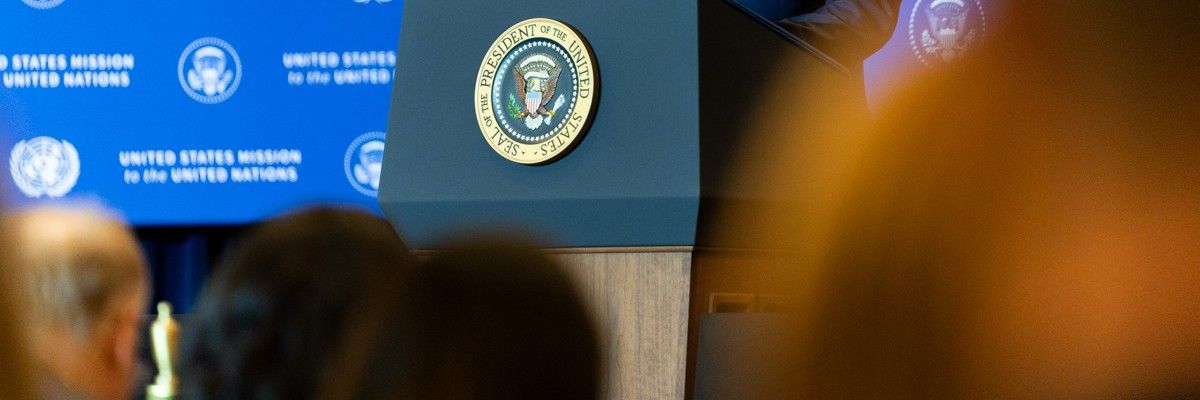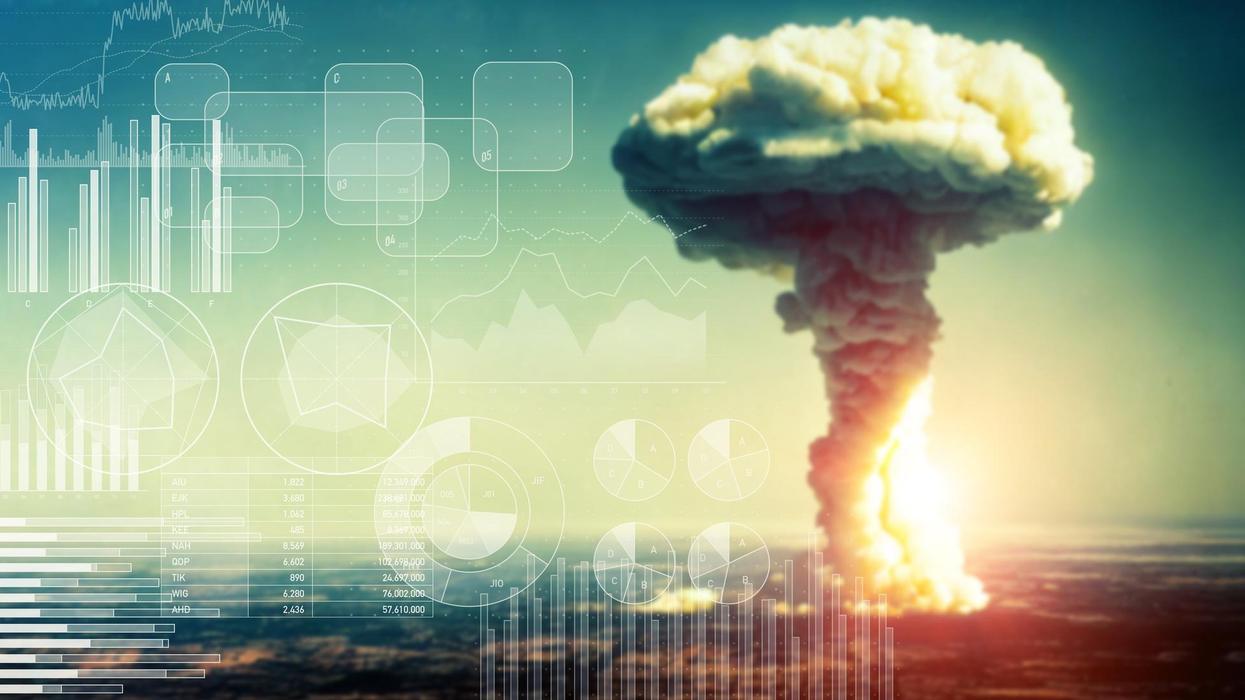With Americans dealing with a pandemic and many focused on the elections, the Trump administration is putting on a diplomatic theater of the absurd at the United Nations Security Council. Fresh off a stunning, if predictable, defeat in seeking to extend the United Nations arms embargo on Iran in violation of the Iran nuclear deal, the U.S. is expected to try to trigger snapback of all U.N. sanctions on Iran in a bid to tear down the nuclear accord struck under President Trump’s predecessor, Barack Obama. However, this is not a strong or credible diplomatic play. While it can do substantial damage to American credibility and potentially provoke Iran to lash out, it looks increasingly like the last gasp of a failed “maximum pressure” Iran approach that is likely to be reversed after the U.S. presidential election on November 3.
Last week saw the U.S. demand, beg, and cajole other countries on the United Nations Security Council to extend the U.N. arms embargo on Iran, set to expire in October under the terms of the Joint Comprehensive Plan of Action, or Iran nuclear deal. However, where once the U.S. was able to forge consensus, the Trump administration’s solitary 2018 exit of the JCPOA has ensured united opposition to the U.S. position. Only the Dominican Republic voted with the U.S. to extend the embargo, ensuring that it fell seven votes shy of even forcing Russia or China to veto the ill-advised gambit.
Rather than learn from their mistake, the Trump administration will instead turn its attention to shooting itself in the other foot by pursuing the more radical goal of “snapback.” Under the JCPOA, participants are directed to resolve disputes through the mechanisms contained in the accord. However, if a dispute cannot be resolved, a complaining party can escalate the matter to the U.N. Security Council and seek a vote on a resolution to continue the sanctions lifting outlined in the accord, which is itself subject to a veto. The clever formulation inverted the normal procedure of the U.N. Security Council, effectively requiring unanimity from the five permanent veto-wielding members — China, France, Russia, the United Kingdom, and U.S. — in order to keep the deal alive. However, rather than responding to a bad faith Iranian violation as envisioned in the JCPOA, it is the U.S. that is out of the deal and circling back in bad faith to trigger snapback after it loudly ceased its participation in the accord over two years ago.
It is a profoundly dangerous move. If snapback is triggered and implemented, Iran would likely cease all compliance with its JCPOA obligations and start to withdraw from the Nuclear Non-Proliferation Treaty.
Following the collapse of the Agreed Framework, North Korea followed a similar path before securing nuclear weapons under the George W. Bush administration. Already, hardline parliamentarians in Iran have introduced legislation to cease implementation of the JCPOA if snapback is triggered. More certain, however, is a further deep wound to U.S. diplomatic credibility and that of the U.N. Security Council. Relations between the permanent members of the Security Council will further sour, and the credibility of the Security Council as a guarantor of multilateral diplomacy will greatly suffer, just when unity is needed to combat the shared threat of the COVID-19 pandemic. Moreover, the U.S. will never again be trusted with procedures similar to the JCPOA’s snapback provision, which it has sought to use in bad faith despite consistent warnings from allies.
However, some of the worst outcomes could be avoided, simply because the U.S. snapback bid will be treated by the rest of the U.N. Security Council like a reckless tirade from a rampaging toddler. U.S. allies in France and the United Kingdom are poised to object to the snapback play, credibly claiming the U.S. has no standing to initiate snapback and likely stalling on implementing their own countermeasures on Iran, along with Russia and China. While some nations may be pressed into a confrontational position by the Trump administration, the vast majority are likely to oppose and dispute America’s moves, wait for the U.S. election in November and hope the U.S. swiftly grows out of its “maximum pressure” phase under Trump.
There is no avoiding that the track record of maximum pressure has been one of repeated failure. Iran has gradually halted its compliance with the nuclear restrictions contained in the accord, shortening the time it would take to secure sufficient fissile material for a nuclear warhead if it made the decision to seek one. Rather than contribute to regional stability, the U.S. marched to the edge of war twice and blames Iran for attacks in Saudi Arabia, Iraq, and Afghanistan. Iran’s populace has been hard hit by sanctions, which has in turn diminished support for the relatively moderate Iranian President Hassan Rouhani while empowering hardliners eager for confrontation with the U.S.
This is why the Biden campaign has consistently voiced its support for returning to the JCPOA, provided Iran is willing to restore compliance with its own commitments. A Biden team would have many of the same advisors who negotiated the JCPOA over more than two years, and they would be loath to sacrifice its gains without a viable alternative. A return, if done swiftly, could set the stage for further negotiations, particularly on regional security.
With Trump emphasizing in recent weeks that he could get a deal with Iran within four weeks if re-elected, even he appears open to shifting course after November if given another four years. Nobody seriously thinks Trump can get a good deal, let alone get one in four weeks, so long as he and those around him are unwilling to make any compromises on “maximum pressure” or otherwise demonstrate good faith that sanctions will be lifted. But it shows yet again that despite his approach that has shattered diplomatic channels, the President himself still appears to want a deal that outdoes Obama. After the election, freed from having to cater to donors and conservative Evangelicals, a shift could be more likely than a continuation of the status quo.
While the snapback push at the U.N. Security Council will provide Iran hawks with the opportunity to act out a fantasy of killing the Iran nuclear deal, this time for good, the real world appears poised to move on. Thanks in part to the administration’s sheer hypocrisy and alienation of friend and adversary alike, it is less the JCPOA that appears threatened and more the maximum pressure approach that is playing out the string.
















